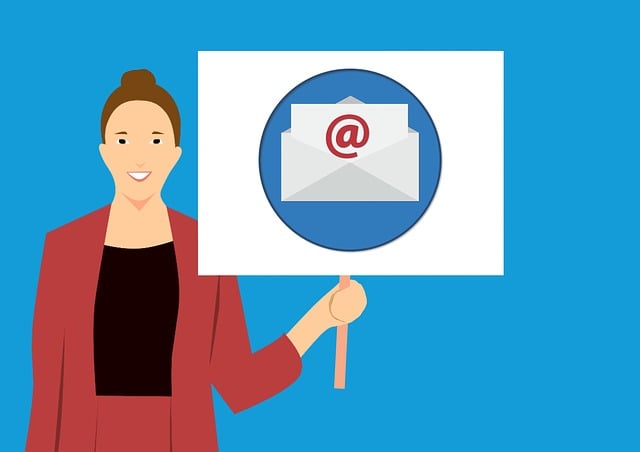Did you know that over 90% of adults in the United States use email on a regular basis? That’s a staggering number, and it’s just one of the reasons why email marketing has become a staple for e-commerce businesses.
But what about SMS marketing? With the rise of smartphones and the increasing popularity of text messaging, many businesses are wondering if SMS marketing can be just as effective, if not more so, than email marketing.
In this article, we will compare the two strategies and determine which one is more effective for e-commerce. We will delve into the world of email marketing, exploring its benefits and drawbacks, as well as the power of targeted and personalized emails.
We will also take a closer look at SMS marketing, examining its unique advantages and challenges. By the end, you will have a clear understanding of which marketing strategy is the best fit for your e-commerce business.
Key Takeaways
- Email marketing allows for detailed tracking and analysis of metrics, leading to higher conversion rates and ROI compared to SMS marketing.
- SMS marketing has a higher open rate and response rate compared to email, creating a sense of urgency and increasing customer interaction.
- Integrating email and SMS campaigns through cross-channel strategies and coordination can enhance e-commerce success and drive higher ROI.
- Personalization plays a crucial role in both email and SMS marketing, as tailored messages have higher open and response rates, increasing engagement and conversions.
Understanding Email Marketing
Email marketing is a fantastic way to reach potential customers and build a strong relationship with them. With the use of email marketing metrics, you can track the effectiveness of your campaigns and make data-driven decisions to optimize your strategy.
Metrics such as open rates, click-through rates, and conversion rates provide valuable insights into your customers’ engagement and preferences. Additionally, email marketing automation allows you to streamline your communication and deliver personalized messages at scale. By segmenting your audience and sending targeted emails based on their behavior and interests, you can increase engagement and drive more conversions.
Now, let’s explore sms marketing and see how it compares to email marketing in terms of effectiveness for e-commerce.
Exploring SMS Marketing
When it comes to reaching your e-commerce customers, nothing beats the direct and instant connection of SMS marketing. SMS marketing ensures that your message is seen by your audience with open rates of 98% compared to email’s 20%. Here are some benefits of SMS marketing:
-
High engagement: SMS messages have a 45% response rate, making it a powerful tool for customer interaction.
-
Increased sales: Studies show that SMS marketing campaigns can increase sales by 32%, as customers are more likely to make a purchase after receiving a text.
-
Time-sensitive promotions: SMS allows you to send time-sensitive offers and promotions, creating a sense of urgency for your customers.
To make the most out of SMS marketing, it’s important to follow best practices such as obtaining explicit consent, keeping messages short and concise, and personalizing the content.
Transitioning into the subsequent section about targeting and personalization, it’s crucial to understand how these strategies can further enhance the effectiveness of SMS marketing.
Targeting and Personalization
Are you looking for ways to make your marketing messages more effective?
One key strategy is tailoring your messages to customer preferences. By understanding what your customers want and delivering personalized content, you can increase engagement and drive conversions.
Another important tactic is segmenting your audience. By dividing your customers into different groups based on their demographics, behaviors, or preferences, you can create targeted marketing campaigns that are more likely to resonate with each segment.
So, if you want to maximize the impact of your marketing efforts, consider incorporating these strategies into your messaging.
Tailoring Messages to Customer Preferences
Imagine being able to send personalized messages directly to your customers’ phones, tailored to their preferences and delivered instantly. With SMS marketing, you have the power to do just that. By understanding your customers’ preferences, you can create customized messages that resonate with them on a deeper level.
Research shows that personalized SMS messages have a higher open rate and response rate compared to generic emails. Customers appreciate the personal touch and are more likely to engage with your brand when they feel understood. By leveraging customer preferences and using message customization, you can create a more compelling and effective marketing strategy.
But don’t stop there. To take your marketing efforts to the next level, it’s important to segment your audience for maximum impact.
[Transition sentence]
Segmenting Your Audience for Effective Marketing
To truly optimize your marketing strategy, it’s crucial to divide your customer base into distinct segments, ensuring your messages are tailored specifically to their needs and preferences. By implementing effective customer segmentation and audience analysis, you can deliver highly targeted marketing campaigns that resonate with each segment.
Start by gathering data on your customers, such as demographics, purchase history, and browsing behavior. This information will help you identify common characteristics and interests within your audience. Once you have segmented your customers, you can create personalized messages that speak directly to their unique needs and desires. This level of customization not only increases engagement but also enhances the overall customer experience.
By leveraging customer segmentation and audience analysis, you can maximize the effectiveness of your email and SMS marketing efforts. This ultimately leads to higher conversion rates and a greater return on investment.
Conversion Rates and ROI
However, it’s important to note that email marketing often yields higher conversion rates and greater ROI compared to SMS marketing in the e-commerce industry. Here are four reasons why:
-
Measuring Effectiveness: Email marketing allows for detailed tracking and analysis of open rates, click-through rates, and conversions. This data enables you to measure the effectiveness of your campaigns and make data-driven decisions to optimize future strategies.
-
A/B Testing: With emails, you can easily test different subject lines, content, and calls-to-action to identify what resonates best with your audience. This helps improve conversion rates by refining your messaging and design based on actual user preferences.
-
Cost-Effectiveness: Email marketing is relatively inexpensive compared to SMS marketing. The low cost per email sent ensures a higher return on investment, making it a cost-effective choice for e-commerce businesses.
-
Personalization Opportunities: Email marketing allows for more extensive personalization, such as including the recipient’s name, segmenting your audience, and sending tailored offers. This level of personalization can significantly impact conversion rates.
By leveraging the effectiveness of email marketing, you can build stronger customer relationships and drive higher sales.
Building Customer Relationships
If you want to nurture customer loyalty and build strong relationships with your audience, email marketing is a powerful tool.nnWith personalized and targeted email campaigns, you can keep your customers engaged and informed about your latest offers and updates.
On the other hand, SMS marketing is a great way to enhance customer engagement and create a sense of urgency.nnBy sending timely and relevant text messages, you can drive immediate action and increase customer satisfaction.
So, both email marketing and SMS marketing have their unique benefits in building customer relationships and should be used strategically for maximum impact.
Nurturing Customer Loyalty through Email Marketing
Imagine receiving a personalized email with exclusive offers and updates, designed to nurture your loyalty and make you feel valued as a customer. That’s the power of email marketing in nurturing customer loyalty. Studies show that email marketing is highly effective in customer retention and driving repeat purchases. By offering loyalty programs and personalized content, email campaigns can create a sense of exclusivity and make customers feel appreciated, fostering a stronger bond with your brand.
To illustrate the impact of email marketing on customer loyalty, consider the following data:
| Benefit | % of Customers Who Agree |
|---|---|
| Personalization | 78% |
| Exclusive Offers | 65% |
| Updates on New Products | 52% |
| Enhanced Customer Service | 45% |
| Increased Trust in the Brand | 42% |
Now, let’s transition to the subsequent section about enhancing customer engagement with SMS marketing.
Enhancing Customer Engagement with SMS Marketing
Using SMS marketing to engage with customers can be likened to sending a quick and personalized text message to a friend, instantly capturing their attention and fostering a closer connection with your brand.
To ensure success with SMS marketing, it’s important to follow best practices. These include obtaining proper consent, segmenting your audience, and personalizing your messages.
Additionally, measuring the success of your SMS campaigns is crucial. Track metrics like open rates, click-through rates, and conversion rates to gauge the effectiveness of your messages. By analyzing this data, you can optimize your future campaigns and improve customer engagement even further.
Integrating email and SMS marketing allows you to create a cohesive and comprehensive marketing strategy, leveraging the strengths of both channels.
Transitioning into the next section, let’s explore how these two channels can work together to enhance customer engagement.
Integrating Email and SMS Marketing
If you want to maximize your results in e-commerce marketing, it’s important to use both email and SMS channels.
By integrating these two channels, you can reach a wider audience and engage customers on multiple platforms.
Coordinated email and SMS campaigns can be a powerful strategy to increase customer engagement and drive sales, as they allow you to deliver targeted messages and promotions through different channels simultaneously.
Using Both Channels to Maximize Results
By combining email and SMS marketing, e-commerce businesses can create a powerful multichannel strategy that maximizes reach and engagement with customers. This approach allows businesses to leverage the strengths of both channels, resulting in higher open rates, click-through rates, and ultimately, conversions.
Here are four ways you can use both email and SMS marketing to maximize your results:
-
Personalize your messages: Using AI technology, you can analyze customer data to create personalized emails and text messages that resonate with your audience.
-
Optimize email deliverability: By monitoring email deliverability metrics and using best practices, you can ensure that your emails reach the intended recipients’ inboxes.
-
Coordinate timing: Sending emails and SMS messages at strategic times can help reinforce your message and increase the likelihood of customer engagement.
-
Provide exclusive offers: Use email to tease exclusive deals and then send a follow-up SMS with a unique discount code, driving immediate action.
By implementing these strategies, you can seamlessly integrate your email and SMS campaigns, enhancing your overall marketing efforts.
Strategies for Coordinated Email and SMS Campaigns
To create an impactful multichannel marketing strategy, you can seamlessly integrate email and SMS campaigns, maximizing customer engagement and conversions.
Cross channel campaigns allow you to reach customers through multiple touchpoints, ensuring your message is seen and heard. By mapping out the customer journey, you can identify key moments to send targeted emails and SMS messages, increasing the chances of conversion.
For example, you can send an email introducing a new product and follow up with an SMS offering a limited-time discount. This coordinated approach keeps your brand top of mind and encourages action.
Additionally, tracking and analyzing customer responses to both email and SMS campaigns provides valuable insights into their preferences and behavior. By leveraging the power of both channels, you can enhance your e-commerce success and drive higher ROI.
Frequently Asked Questions
How can I measure the success of my email marketing campaigns?
To measure the effectiveness of your email marketing campaigns, you can track key metrics such as open rates, click-through rates, conversion rates, and overall revenue generated. By analyzing these metrics, you can determine how well your campaigns are performing and make data-driven decisions to optimize future campaigns.
Additionally, you can use tools like Google Analytics to track website traffic and sales attributed to your email campaigns. Implementing these tracking methods will help you gauge the success of your email marketing efforts.
Is SMS marketing more cost-effective than email marketing?
SMS marketing is a highly cost-effective strategy compared to email marketing. With SMS, you can reach a wider audience at lower costs per message.
Additionally, SMS has a higher open rate and faster response time, leading to increased customer engagement.
When it comes to measuring ROI, SMS marketing allows for easier tracking and analysis of campaign effectiveness.
By considering the cost effectiveness and ROI measurement, it’s clear that SMS marketing is a smart choice for e-commerce businesses.
Can I use both email and SMS marketing simultaneously?
Yes, you can definitely use both email and SMS marketing simultaneously. By integrating these strategies, you can maximize your customer engagement and increase the effectiveness of your marketing campaigns.
Email marketing allows for detailed and personalized messages, while SMS marketing provides instant and direct communication. By combining these channels, you can reach a wider audience and cater to different preferences.
Studies have shown that businesses that use both email and SMS marketing experience higher conversion rates and improved customer retention.
Are there any legal restrictions or regulations for SMS marketing?
When it comes to SMS marketing, there are legal requirements and opt-in regulations that you need to be aware of.
In many countries, you’re required to obtain explicit consent from individuals before sending them promotional messages.
Additionally, you must provide an easy opt-out option for recipients who no longer wish to receive your messages.
By following these regulations, you can ensure that your SMS marketing campaigns are compliant and respectful of your customers’ preferences.
How can I ensure my email and SMS marketing messages are not marked as spam by recipients?
To ensure your email and SMS marketing messages are not marked as spam by recipients, focus on email deliverability and SMS compliance.
Did you know that the average email deliverability rate is around 85%? That means 15% of emails never reach the intended inbox. To improve deliverability, use a reputable email service provider, maintain a clean email list, and personalize your messages.
For SMS compliance, familiarize yourself with regulations like the Telephone Consumer Protection Act (TCPA) and obtain proper consent before sending SMS marketing messages.
Conclusion
In conclusion, both email marketing and SMS marketing have their advantages and can be highly effective for e-commerce.
However, when it comes to reaching a wider audience, email marketing tends to have the upper hand due to its higher open rates and larger reach.
On the other hand, SMS marketing excels in terms of immediacy and engagement.
To maximize your results, it’s recommended to integrate both strategies and leverage their strengths.
Remember, "Don’t put all your eggs in one basket" – diversify your marketing efforts for optimal success in the e-commerce world.







